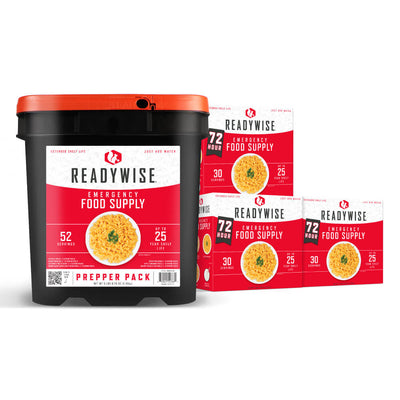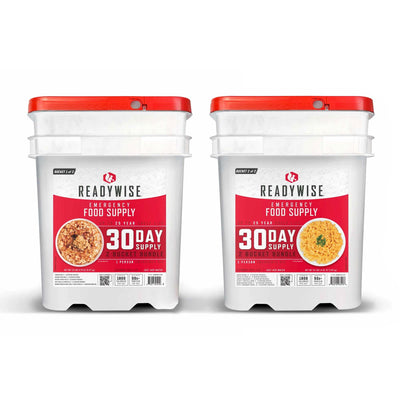First Aid Tips for Common Accidents
First aid kits are essential for any family’s emergency supplies, whether you’re preparing for a natural disaster or just heading out to the beach for the day. Accidents and mishaps can happen anywhere, and being prepared for the eventuality allows you to respond faster and provide the injured party with much-needed relief.
While some people build their own first aid kits, with so many premade kits available on the market there’s really no need. Commercial first aid kits provide all the basics, usually at a cost below what it takes to buy medical supplies separately.
With a well-stocked kit you can treat most minor mishaps, or at least provide some measure of assistance before medical professionals arrive. Here’s the most common accidents you’re likely to encounter, with directions on how to treat each injury.
Animal or Human Bite
Always follow up first aid for a bite with a doctor’s visit. Bites and animal scratches can cause serious infections, and often need antibiotic treatment.
- Hold a clean towel or gauze pad over the wound until it stops bleeding
- Clean the affected area with soap and water
- Cover with a clean bandage or gauze
- See a doctor as soon as possible.
Cuts and Scrapes
Cuts and scrapes are the inevitable part of an active lifestyle, especially if you have children. In most cases, take the following steps.
- Wash hands well
- Use a gauze pad or clean cloth to apply pressure to the wound until bleeding stops
- Clean the affected area with cool running water or a saline rinse
- Rinse tweezers with alcohol and remove dirt or debris at the wound site
- Bandage the area if the wound is likely to become dirty or rubs against the body
- Change the bandage daily, or when it gets wet or dirty, until a solid scab forms.
Large, deep, or jagged wounds may need stitches. If the wound continues to bleed or becomes infected, seek medical aid.
Insect Stings
If someone develops a rash, swelling, or difficulty breathing after an insect bite, they may be going into anaphylactic shock and need emergency assistance. For the less dangerous symptoms of an insect bite, however, take the following steps:
- If the stinger is still in the skin, use a credit card or the dull side of a knife to scrap it out. Do not squeeze stingers, as doing so injects more venom into the wound
- Wash the affected area with soap and water
- Reduce swelling with an icepack or cool washcloth
- Apply calamine lotion to stop swelling. A mixture of water and baking soda also works
- Reduce itching with antihistamine or hydrocortisone sprays or creams.
Minor Burns
For minor burns, place the affected area under cool running water for at least five minutes to reduce swelling. Apply a generous amount of antiseptic lotions, antibiotic ointment or aloe vera cream to the affected area, and loosely wrap with gauze. Do not pop blisters or use the old folk remedy of rubbing butter on the burn. Both can lead to skin damage and infection.
Nosebleed
They look alarming, but nosebleeds are usually easy to treat. Lean the affected person’s head forward slightly to prevent blood from pouring down the throat.
Using a clean washcloth, gently press the nostrils together and hold for five minutes. If the nosebleed continues, hold for another five minutes. Seek medical aid if:
- The nosebleed does not stop
- Blood flows in large amounts or rapidly
- The injured party feels weak or faint
- The blood originates in a physical injury to the head or nose.
Poison Ivy or Poison Sumac
As with insect bites, contact with poison ivy or sumac has the potential to cause severe allergic reactions. For less serious reactions wash the skin with soap and lukewarm water to remove as much of the irritating plant oil as possible. Bathing in baking soda or colloidal oatmeal baths can help offer relief. If a bath isn’t possible, apply a cool, wet washcloth to the affected area.
Once dry, apply calamine or hydrocortisone cream to reduce the itch. Try not to scratch, which can lead to infections. You’ll also want to wash any clothing, items, or pets that came into contact with the plant.
Splinters
Before trying to remove a splinter, wash the surrounding skin with soapy water. Rinse your tweezers with alcohol and use them to grasp the end of the splinter. Pull the splinter out gently, following the same angle as the entry wound.
If the splinter is under the skin, rinse a needle with alcohol and use it to gently scrap away the skin until you see the top of the splinter, then proceed as described above.
Sprains and Strains
Another common injury, treat minor sprains and strains by resting the limb, keeping it supported and elevated if possible. Apply an icepack for twenty minutes four to eight times a day, and take OTC meds for pain relief. If necessary for movement, splint the affected area or wrap the limb with an elastic bandage.
Sunburn
An occupational hazard when out in the great outdoors, most sunburns are easy to treat. If possible, take a cool shower or bath. If not, sooth the burn with a cool, damp cloth. Gently pat the skin dry.
Apply hydrocortisone cream or aloe vera, and use OTC meds for pain. Sunburns encourage dehydration, so drink lots of water. Do not use any lotion containing petroleum lidocaine, or benzocaine, which can irritate sunburns.
Resources
http://www.webmd.com/first-aid/first-aid-tips
http://www.parents.com/health/injuries/first-aid/fast-first-aid-tips-for-6-common-accidents/
















































































